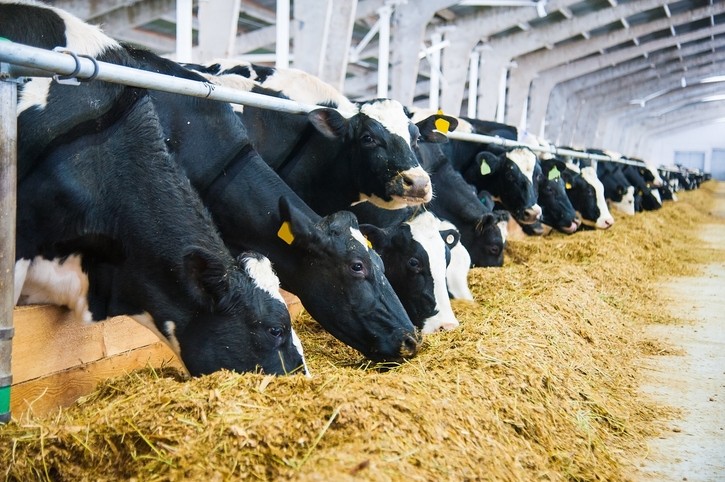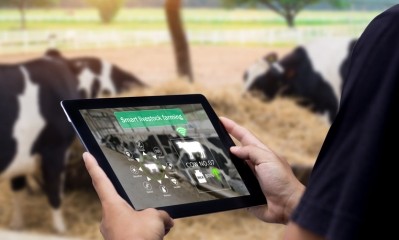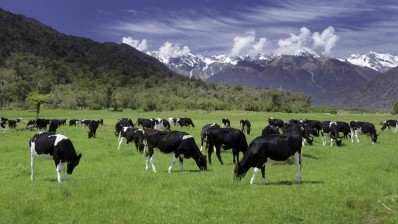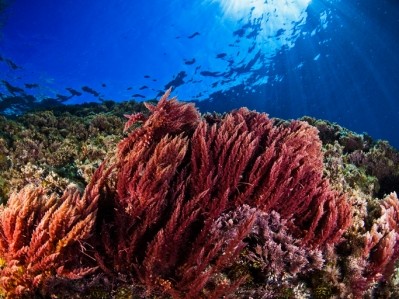DSM submits methane inhibitor to EU feed additive approval process

Ruminants have a complex digestion process that uses microbes to break down and extract nutrients from fibrous plants like grass. As part of this process, other microbes produce methane that is burped and breathed out. A single dairy cow generates about three tons of CO2e (carbon dioxide equivalent) every year in the form of enteric (burped) methane, according to DSM.
Like CO2, methane is a greenhouse gas that contributes to climate change. While short-lived, it is a more potent greenhouse gas than CO2.
Reducing global methane emissions could therefore help lower the rate of global warming in the near term, helping society stay within the 1.5-2°C maximum temperature rise indicated in the Paris Climate Agreement, while society moves to net zero carbon emissions, said the company.
10-year long research project
DSM said its methane inhibitor, 3-nitrooxypropanol or 3NOP, was developed under its 10-year long Project Clean Cow.
The product's efficacy was confirmed in 26 peer-reviewed studies globally, said the producer.
Project Clean Cow initially had input from biologists and chemists at DSM’s R&D unit in Switzerland, as well as experts in ruminant science and animal nutrition. It then expanded to include an international scientific network.
A study, released in 2016, involving both DSM scientists and researchers at Germany’s Max Planck Institute for Terrestrial Microbiology explained how the molecule in the methane inhibitor, 3-NOP, hampers an enzyme in the stomach responsible for the methane production.
A quarter teaspoon of the feed additive per cow per day suppresses that enzyme, said DSM. Upon feeding, it said that the additive takes effect immediately. After suppressing methane production in the stomach, it is broken down into compounds already naturally present in the cow’s stomach.
Launch date
DSM expects to launch the product in the EU either in 2020 or early 2021. It said registrations in other regions would follow.
Mark van Nieuwland, program director, DSM, told us the feed additive would initially be targeted at more intensive dairy systems - Total Mixed Ration (TMR) and Partial Mixed Ration (PMR): "Most major European markets have TMR and PMR farms, the main exception being Ireland."
Subsequent forms of the methane inhibitor, which are in final stages of development, will be targeted at pasture based systems and will be available shortly thereafter, he said.
The feed additive was actually referenced in a report published yesterday, compiled by New Zealand’s Interim Climate Change Committee; it made recommendations to the NZ government on strategies to reduce agricultural methane and nitrous oxide emissions.
Start-up looking to bust methane emissions
A Swiss agtech start-up, Mootral, is also focused on methane reduction.
When we spoke to the company in May, it said it was awaiting the result of scientific trials and commercial pilot projects before fully launching its methane reduction product for ruminants in select European markets.
The start-up's first product, Mootral Ruminant, is a methane reduction product for dairy and beef cattle as well as sheep, which is based on a proprietary combination of organosulfur compounds from garlic and bioflavonoids extracted from citrus.
“We want to really be able to deliver a product that consistently works under different farming conditions, and we have seen, over the past two years, that the big beef and dairy companies are really looking for a very solid scientific foundation [in relation to additive mode of action and effectiveness].
"Even though we have gathered relevant scientific results and insights, our challenge, as a small, start-up company, is working to get this solid scientific basis, generating more peer reviewed papers and doing more in-vivo trials.
“The results of that research will influence the exact timing of launch, but we are saying that in the second half of 2019, we should be ready to go,” Vivica Pietz, marketing and communications, Mootral, told us back then following the company’s receipt of CHF 200,000 (US$198,940) from the Swiss Climate Foundation.
In April, the UK’s Carbon Trust certified the product’s capability, based on the 10 years of research behind the natural additive, to reduce dairy cattle enteric methane production by up to 38% following successful use.















